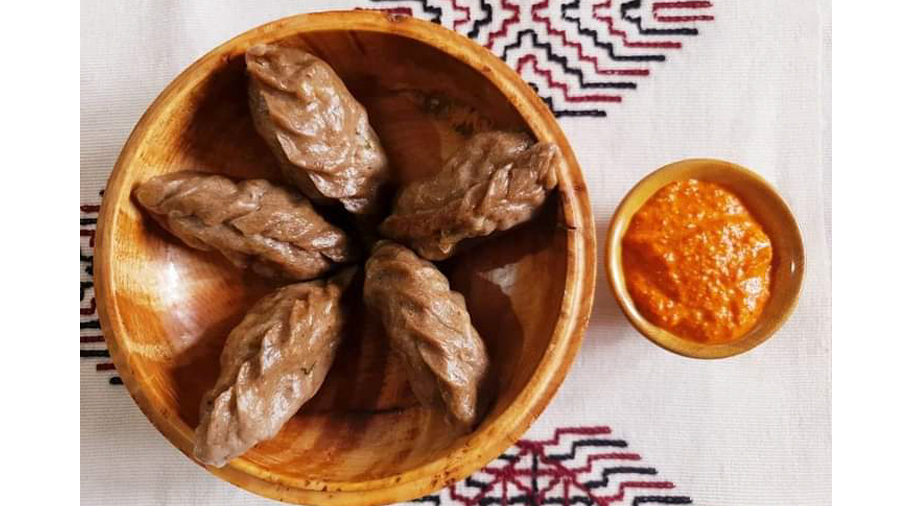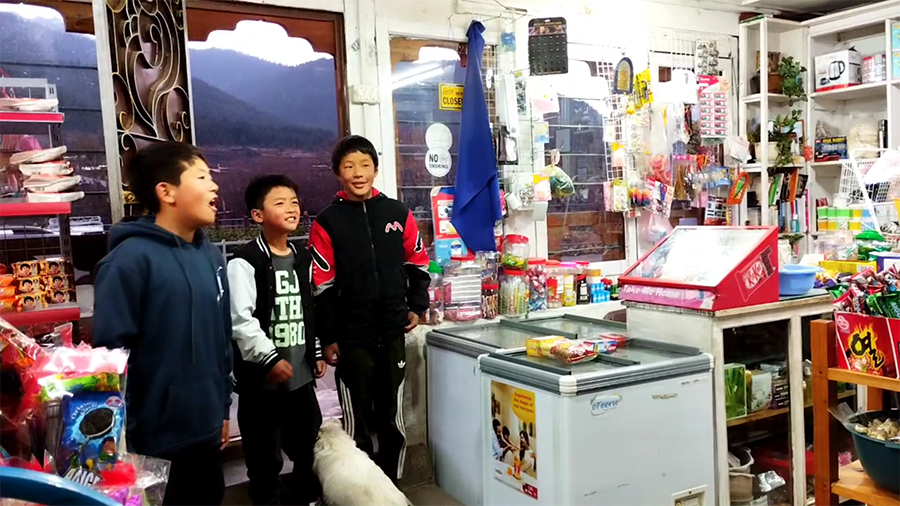
The dawn of the New Year is celebrated by Bhutanese in different parts of the country in their own ways. For the residents of Paro and Haa, it is on the 29th day of the tenth month in the Bhutanese calendar that is celebrated as Lomba. On this day, the People of Paro and Haa come together and celebrate the day with hearty meals and merriment. In Haa, people also rejoice on the first day of the New Year through a tradition called the Lolay. But with the change in time, elders in the district say this tradition is declining.
Since the days that one can remember, the people of Haa gathered on Lomba and in groups, went out to visit homes in the village.
 And as they reach a house, they sing the lolay verses which contain prayers and well-wishes for a prosperous year ahead.
And as they reach a house, they sing the lolay verses which contain prayers and well-wishes for a prosperous year ahead.
According to the elders, singing the lolay verses has a very important significance.
“It is an age-old tradition, same like the Nyilo celebrated by the people of Shah and Chunipai Losar celebrated by those from the East. When we were young, mostly teenagers below the age of eighteen years would go around to sing lolay. The Lolay verses are actually prayers for the family in the house to become more prosperous and have a peaceful and happy year,” said Pelchu Tshering.
But elders in Haa say the tradition is now at risk of disappearing since not many people are interested in it. They say that these days it is mostly small kids who are seen taking part in the lolay singing tradition.
“If things continue like this, I think the tradition won’t be there soon. In the past, there would be so many taking part in it and everyone would know the verses very well. But now it is mostly the small children who are taking part and they don’t know the verses and their meanings,” said another village elder, Chimi Dolma.
Pelchu says most of the youth now “are interested in learning the ways of the outside world. Even when we tell them to learn it because it is a part of our culture and tradition, they don’t listen. The lolay tradition is declining with each passing year.”
The elders in Haa say that the verses are also getting mixed up and changed as it is being sung by small kids.
“When I was 15, those aged between 15 and 18 would go for lolay. We would make sure to learn all the verses properly from our parents without any mistakes. But nowadays, it’s all small children doing it and they sometimes make mistakes with the verses,” said Chimi Dolma.
“In the past, it was mostly the older kids so they would be able to sing the lolay verses without mistake,” said Khandu Wangmo. “But now, it’s the small children who are doing it and maybe it’s because they don’t understand the words, but I’ve noticed a few mistakes at times.”
They say only if the youth take an interest in learning the lomba verses from the parents and if elders also put in some effort then will this tradition survive.
Tshewang, Haa
Edited by Yeshi Gyaltshen








